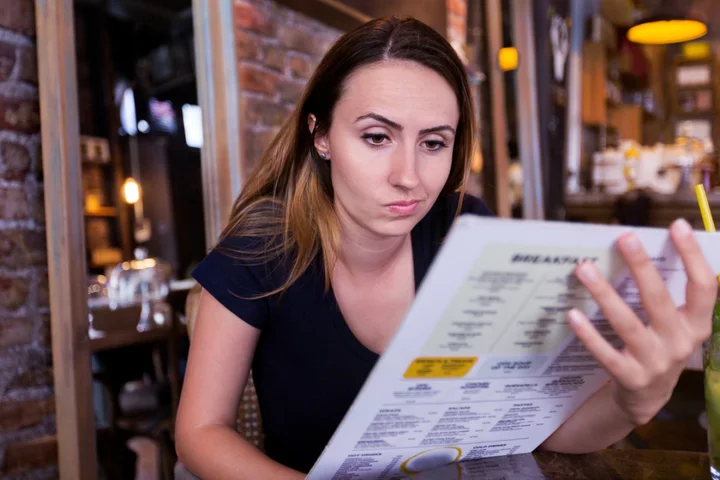
Restaurant menus are ruining eating out: ‘They’re supposed to seduce you, not humiliate you’
What does a “smacked cucumber” look like? What is a “rutabaga”? Why does a “spiny caldereta” sound so threatening? Is “blackened” just a fancy word for “burnt”? These are some of the many questions diners have to grapple with when they look at a menu in some restaurants these days. But Britons are a shy bunch who would rather curl up in a ball and disappear than actually have to utter these queries out loud to a waiter. I would know – my husband is one of 41 per cent of diners who would choose to google an unfamiliar menu term under the table instead of asking for clarification, according to recent research from reservation service Resy. Whenever me and my husband come across an obscure word on a menu, my suggestion of asking the waiting staff to explain is swiftly shot down by the appearance of his phone, followed by a muttered definition from a search engine. Navigating a menu has become harder in recent years. It’s not just the use of lesser-known techniques, nor the use of alternative words for common ingredients (a rutabaga is a turnip and a cep is a porcini or pennybun mushroom, by the way). With Covid came menus only available via QR code, a development that’s now the bane of eating out – some restaurants still use them. It means having to point our stupid camera phones at stupid, alien-looking squares and scroll through the menu in stupid silence, as if we need to be even more enslaved to our devices than we already are. And then, if menus do get printed, they’re impossible to see because restaurants insist on turning their lights down lower and lower. Or they print the text in smaller and smaller typeface, making it a struggle to read even with 20/20 vision – which I haven’t had since I was 10. I’ll never forget trying to read the menu at the ever-trendy Smoking Goat in Shoreditch in 2019, me and five of my companions sat squinting in the dark with our phone torches on. Going to a restaurant should be a relatively easy endeavour, an experience free of stress and embarrassment. But recent menu trends might be off-putting to the customer, says Gavin Rankin of the Mayfair-based French brasserie restaurant Bellamy’s. “Restaurant menus are supposed to seduce you, to persuade you,” he tells me. “There’s a tendency now to list vegetables or ingredients nobody’s ever heard of, but I don’t like it and people don’t like having to ask questions about what something is because it makes them feel foolish. Restaurants aren’t out to humiliate the diner.” Descriptors that give an idea of texture or flavour are important, but they don’t have to be complicated. It’s definitely possible to achieve a balance between having your menu be stylish and still informative Hugh Richard Wright, restaurant PR But could it be a good thing for menus to spark conversation between a diner and the restaurant? When I ask Rankin this, he blows a raspberry down the phone line, though not rudely – just in exasperation. “There’s something a bit… aggressive about it,” he says. “You can see on some menus they are deliberately choosing to list things that will force people to ask. Keep it simple, in my opinion. It’s different if you’re trying a really unfamiliar cuisine, but not when you go to an English or French restaurant. You should be able to look at a menu and be happy to eat 90 per cent of it with pleasure.” I’m someone who’s quite happy to have a chinwag with the waiter and ask questions about a menu. I also like it when a menu provides the opportunity to learn something new. But Rankin is right in pointing out that many diners don’t like asking questions at all, and menus shouldn’t force a diner into having to enquire about every single item. Hugh Richard Wright, leading restaurant PR and man-about-town with years of eating and consulting experience under his belt, says restaurants need to be mindful of striking the right balance with their menus. “A menu is more than just a list of dishes,” he says. “It should tempt you and excite you, so the descriptions should be tantalising. A menu that makes you want to have a conversation with your server is nice but it’s a balance. You don’t want to have everything explained to you and to go through every dish asking, ‘What’s this, what’s that’. That’s what a lot of places get wrong.” He adds that a menu should give the diner a “realistic impression of what you’re getting on your plate” – a reasonable enough expectation that some restaurants have foregone in favour of just listing ingredients. “For example, ‘pork, leek, kumquat’. It should describe how the pork is cooked. Is it pulled pork? Or roasted? Descriptors that give an idea of texture or flavour are important, but they don’t have to be complicated. It’s definitely possible to achieve a balance between having your menu be stylish and still informative.” David Paw, international editor at Resy, advises that we shouldn’t be put off by a sparse menu. “It may be deliberate,” he says. “The restaurant is setting up the chance for a guest and the front of house staff to engage in a dialogue. I lean into these moments as opportunities to have a chat about ingredients, techniques, and the kitchen’s creative process. I’d encourage diners to always try to ask for more information. Even frequent diners are always learning and expanding their food vocabulary.” It comes down to what kind of experience we’re looking for when we dine out. For some, like Paw and myself, it’s fun and exciting to come across new things on a menu. But for many, given that eating out nowadays is much more of a pricey indulgence than it used to be, relaxation is key, not being challenged. This isn’t to say that every single restaurant should acquiesce to simplicity, but it would be no small potatoes to consider ways to make a diner feel less like they need a thesaurus before sitting down. It doesn’t diminish a fine restaurant to make its menu more accessible – instead, it would make it so much more appealing, bringing incredible food to the many instead of the few. That said, we go to restaurants to eat food we wouldn’t normally cook ourselves, and often food that we’re not familiar with. There is so much joy to be had in allowing new flavours and textures to colour your palate, and the culinary world has never been more creative or diverse than it is right now. So in a time where suspicion of anything unfamiliar is rife, perhaps it would do us all some good to try something new on our plates. Next time you’re stuck, ask your waiter for assistance. I promise they won’t bite. Read More Best burgers in London: Where to eat top patties in the city Why ‘chain’ restaurant shouldn’t be a dirty word Three ramen recipes to change your life Best burgers in London: Where to eat top patties in the city Why ‘chain’ restaurant shouldn’t be a dirty word Three ramen recipes to change your life
2023-10-29 14:47
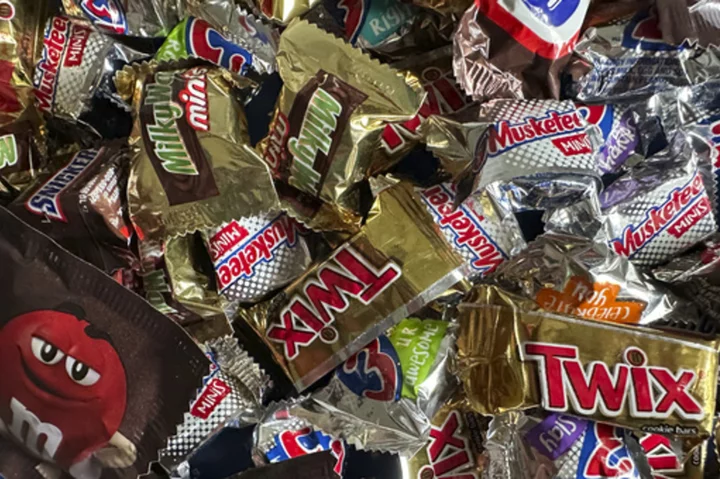
Less boo for your buck: For the second Halloween in a row, US candy inflation hits double digits
For the second year in a row, U.S. shoppers are seeing double-digit inflation in the candy aisle
2023-10-28 21:24

Disney says DeSantis-appointed district is dragging feet in providing documents for lawsuit
Disney says Walt Disney World’s governing district made up of Florida Gov. Ron DeSantis' appointees is dragging its feet in providing requested documents to the company in a lawsuit over who has design and construction powers over Disney’s sprawling theme park resort in central Florida
2023-10-28 04:26

Love K-pop star Mark Tuan's new EP? You can discuss it with 'Digital Mark,' his AI twin
There's Mark Tuan, the K-pop musician
2023-10-28 03:25
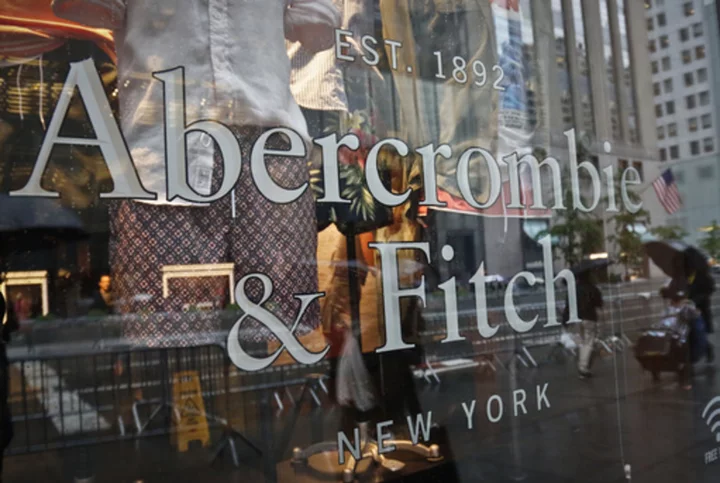
Abercrombie & Fitch slapped with lawsuit alleging sexual abuse of its male models under former CEO
A former model for Abercrombie & Fitch has sued the fashion retailer, alleging it allowed its former CEO Mike Jeffries to run a sex-trafficking organization during his 22-year tenure
2023-10-28 02:47

Best Buy recalls nearly 1 million pressure cookers after reports of 17 burn injuries
Best Buy is recalling nearly 1 million pressure cookers and separate inner pots due to a defect that can cause hot foods to spew out, posing burn hazards
2023-10-28 02:21

Where you've seen Atlanta, dubbed the 'Hollywood of the South,' on screen
ATLANTA (AP) — Metropolitan Atlanta is home to the second highest number of soundstages in the U.S., including the massive Tyler Perry Studios and Trilith Studios. But many productions have chosen to shoot in and around the city itself, often as stand-ins for other locations (it’s a popular double for New York). Here are some landmarks and towns you might recognize:
2023-10-27 21:53
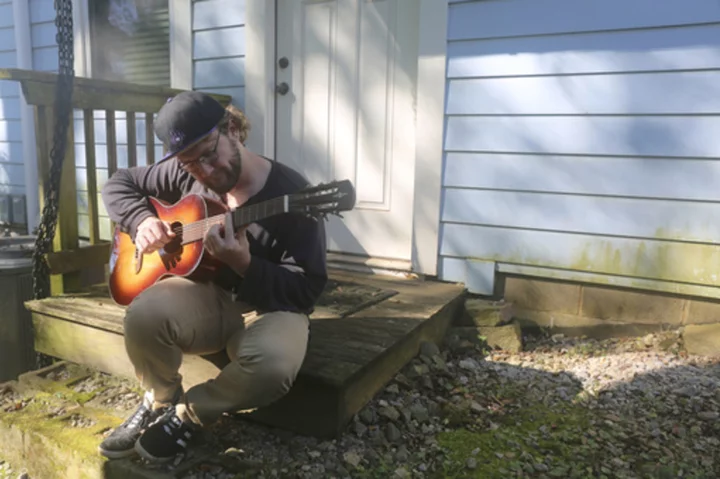
As the 'Hollywood of the South,' Atlanta has boomed. Its actors and crew are now at a crossroads
For more than a decade, work had been nonstop in Atlanta’s booming film industry thanks to Georgia’s extremely generous tax break
2023-10-27 20:53
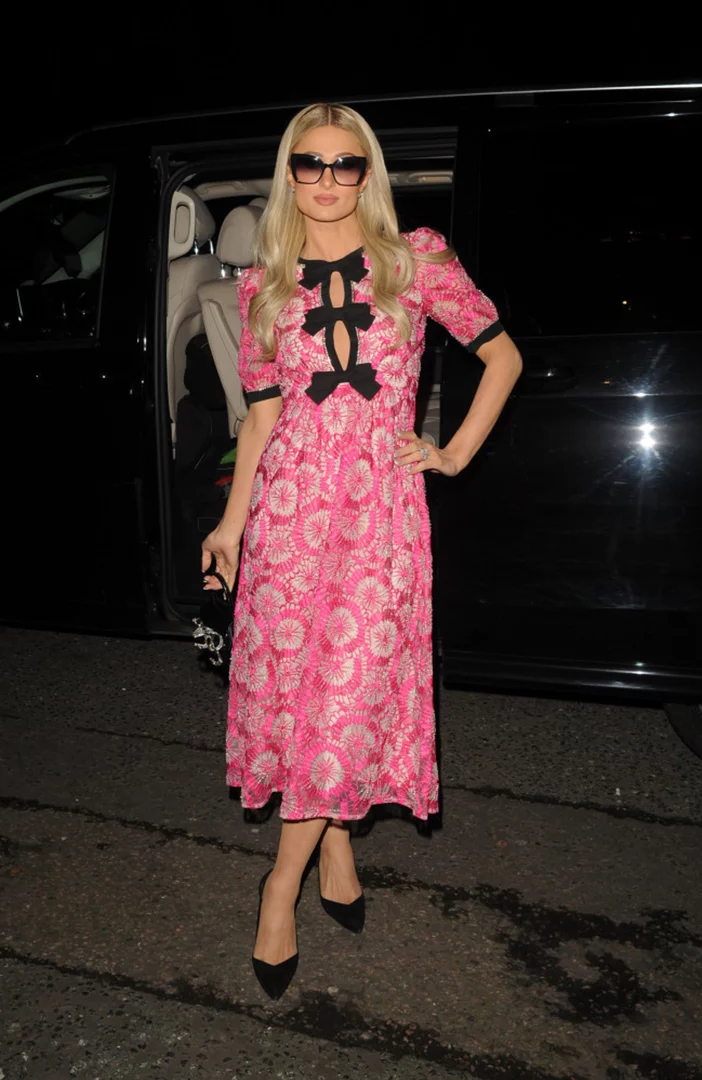
Paris Hilton invented Barbiecore
Paris Hilton reveals that her outfits and she as a person are inspired by Barbie and has 'looked up to her my entire life'
2023-10-27 18:25

If being without your phone fills you with dread, you could have nomophobia
If you’re filled with terror at the prospect of being without your phone, you’re not alone. A new poll has found that 42% of British adults identify with ‘nomophobia’ – the fear of being stuck without mobile phone connectivity. According to psychologist Dr Linda Papadopoulos, nomophobia is firstly about “dependency”, and secondly about “slight catastrophising”. She said: “The key to having a healthier relationship with your phone is implementing values, boundaries and being self-aware when it comes to how we use our phones.” Of the 2,000 people surveyed by Sky Mobile, 23% said they would rather hold a tarantula, 14% said they would prefer to go swimming with sharks, and 15% said sleeping in a haunted house would be better than being without 5G for an entire week. According to the research, on average British people use their phone for 14 hours per week. Here’s what you need to know about phone addiction – and how it might be impacting our wellbeing… How can we spot the signs of nomophobia or phone addiction? According to Papadopoulos, it’s quite simple. “If you’re engaging and constantly checking to see where your phone is or if you’ve missed a call, [and are] worried, anxious about the possibility of missing out” – whether this is a social event or something work-related – you could have nomophobia, Papadopoulos suggested. “We’re at our most peaceful when we feel like we have control over something.” She encourages you to think about the first thing you look for when you wake up or walk out the door – if it’s your phone, it could be a sign of nomophobia. “There’s also this thing where we think our phone is vibrating, and it’s not. That’s another sign too.” Has social media made it worse? It’s important to understand what our phones are to us. “They’re no longer just phones, right? They are these digital prostheses, which we use to do everything from learn to work to connect,” said Papadopoulos. “In the case of things like social media, we know that a big part of our desire to be on those apps is around that sense of not just belonging – which obviously they were originally intended for – but also that sense of missing out. “So I think anything that you do, which relates to who you are, your expectations around your work, your personal life, are all going to feed into this.” How might it be impacting our wellbeing? “It all depends on what we are doing with our phones. If I’m sitting down doom scrolling, of course it will affect how I’m feeling. That’s not great,” she suggested. “You want to own your technology instead of your technology owning you. Don’t catastrophise your mobile phones, because there are other things you can do to remain connected and it can lead to technology separation anxiety – the disproportionate sense of fear of being without your technology. “When you are talking about any sort of addiction, if it gets in the way of your day-to-day life, you start having disproportionate reactions, struggle to engage with people in real life, your sleeping pattern is non-existent or not eating your dinner, those are the sorts of things you should look out for when it comes to nomophobia. “For example, if a 12-year-old girl is posting a bunch of things on social media and sitting at her phone waiting for likes, that would be a sign of her phone affecting her mental health.” But there are also positives to mobile phones, Papadopoulos adds. “I live really far away from my family. Sometimes I even cook with my mum, even though she lives in Cyprus,” she said. How can we start to address it if we think we have a problem? “Do basic things like keeping your phone in the same place to avoid using brain power constantly looking for where it is,” Papadopoulos advised. “And don’t vilify or deify your mobile phone. It’s neither the best thing in your life or the worst. This will help you start to get a sense of control over those anxious thoughts.” If you’re concerned that your behaviour might be addictive, see your GP for help. For more information on how to switch to Sky Mobile visit https://www.sky.com/shop/mobile. Read More Nursery places and wraparound childcare plans announced Is scalp exfoliation the key to healthier hair? Why do some people love horror movies? TikTok influencers warn about ‘potent’ steroid cream risks among black women – dermatologist explains the risks House of the Year 2023 shortlist revealed by Royal Institute of British Architects Fatima Whitbread supporting new fostering campaign, as research finds ‘misconceptions put people off’
2023-10-27 16:46
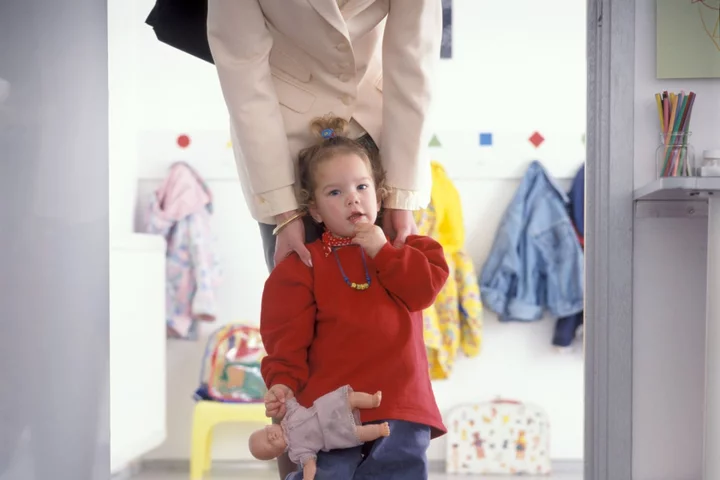
Nursery places and wraparound childcare plans announced
Parents can go online to find out what childcare they are eligible for under plans which will see nurseries expanded to provide more places and funding given to councils for wraparound care. Further details of the previously-announced reforms to allow some families of children as young as nine months to claim 30 hours of free childcare a week – set out by Chancellor Jeremy Hunt in the March Budget – have been announced. The Department for Education said parents in England can visit an eligibility checker online to see what they are entitled to, depending on their earnings and their child’s age. The Government said £100 million is being made available for nursery and early years places, with funding intended to support childcare settings to increase their physical space, which the department said is anticipated to add thousands of new places across the country. Following Mr Hunt’s target for all schools to be able to offer care either side of the school day by September 2026, local authorities will also now be getting details of how much of the £289 million wraparound fund they will receive – based on “anticipated need”. Early years leaders had previously expressed concerns that nurseries and childminders could struggle to deliver additional places for younger children from next year if the funding provided by the Government does not meet rising costs. The offer of free childcare for working parents will be available to those with two-year-olds from April 2024, covering around half a million parents, but it will initially be limited to 15 hours. From September 2024, the 15-hour offer will be extended to children from nine months, helping a total of nearly a million parents, and the full 30-hour offer to all under-fives will come in from September 2025. This is the largest investment in childcare in our history, so I encourage people with young children or those thinking about starting a family to visit the Childcare Choices website to find out what they’re eligible for Education Secretary Gillian Keegan Education Secretary Gillian Keegan said: “No-one should have to choose between having a career and having a family, so I’m determined that every parent who wants it should have access to the childcare they need. “Flexibility is at the heart of our plans to transform childcare for families, whether it’s offering quality childcare out of school hours or making sure there are more early years places where they’re needed most. “This is the largest investment in childcare in our history, so I encourage people with young children or those thinking about starting a family to visit the Childcare Choices website to find out what they’re eligible for.” Paul Whiteman, general secretary of school leaders’ union NAHT, said that far more investment is needed. “Unfortunately, the money behind this expansion is a fraction of what is required. Our members are also questioning where they will find the additional staff,” he said. “There is a real danger that the Government’s promises could fall short in reality if they don’t urgently look again at the funding and resources.” Helen Hayes, Labour’s shadow children and early years minister, added: “Without more details about whether this is new money, how many places it will provide and how new childcare will be staffed this pledge isn’t worth the paper it’s written on. “The Conservatives have overseen a dramatic fall in the number of childcare providers and places – they simply cannot be trusted to deliver the change in childcare that families need and deserve.” The department also said the childminder start-up grant scheme will open for applications by the end of November. The grant – £600 for those who register with Ofsted and £1,200 for those who register with a childminder agency – is aimed at boosting the numbers of childminders working to offer parents more flexible childcare. Work and Pensions Secretary Mel Stride said: “Boosting employment is key to growing our economy, and the extra money provided for parents on Universal Credit will give them the flexibility and security they need to find a job, support their children and reap the benefits of work. “I encourage every parent to access this resource to see what help is available and to talk to one of the thousands of Work Coaches in our Jobcentres who are there to help them find work or enhance their skills.” Parents can visit childcarechoices.gov.uk to use the eligibility checker. Read More Is scalp exfoliation the key to healthier hair? Why do some people love horror movies? TikTok influencers warn about ‘potent’ steroid cream risks among black women – dermatologist explains the risks House of the Year 2023 shortlist revealed by Royal Institute of British Architects Fatima Whitbread supporting new fostering campaign, as research finds ‘misconceptions put people off’ 5 key coat trends to complete your autumn/winter wardrobe
2023-10-27 15:45
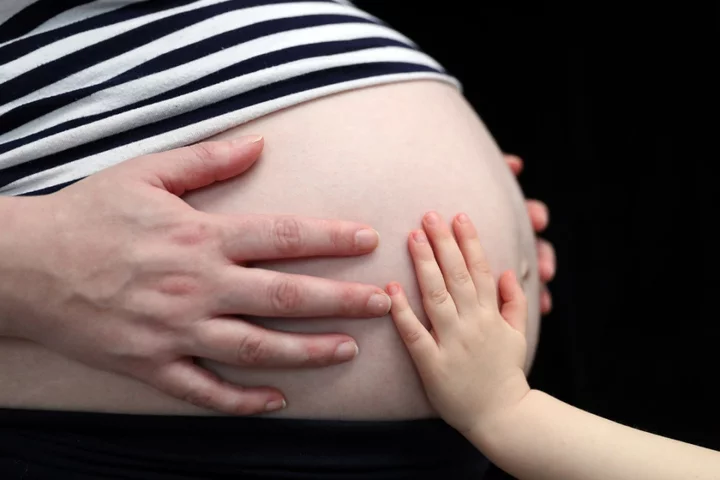
Your forties is the perfect decade to have your first child – I’m living my best life
Seven years ago, I was at my local antenatal class preparing for the birth of my firstborn. In my forties and armed with a coloured birthing ball, I looked around and gasped. All the other soon-to-be-mums were at least a decade younger than me. Some were nearly half my age. It briefly panicked me. Would I make any friends? Why did I leave it so late to have kids? Was I doing something wrong? In hindsight, though, I had no reason to worry: your forties is absolutely the best decade in which to have your first child. According to data published last week in The Daily Telegraph, the number of women becoming first-time mothers in their forties has increased in recent years: today, one in 25 UK births is to a woman aged 40-plus. That’s a lot of women just like me, despite the fact that getting pregnant over 35 gets you labelled as someone of “advanced maternal age”. That might sound harsh until you remember that older pregnancies used to be termed “geriatric” – thank God that’s been phased out. I’ve never regretted waiting until my forties, even if I had been trying for children for years by that point. My story is undeniably unique: my partner Alex took his own life while we were doing IVF, but that didn’t stop me from continuing to try to get pregnant. The maternal call was strong, so I decided to carry on with the process using Alex’s frozen sperm. Today I have two beautiful daughters with him: Lola, seven, and Liberty, five. It is an understatement to say I was ready for a baby at 40. I was grounded. Confident. Unlike when I was in my twenties or thirties, I knew exactly who I was and what made me tick. I had life experience. I no longer got FOMO. I didn’t even drink, having been through hell and back to become sober 20 years earlier. My career was fully off the ground, and therapy had helped me identify the family dysfunction I knew to ditch for the sake of my kids. I also wasn’t worried about my body bouncing back after the birth. I just desperately wanted to be a mum. Of course, there are all sorts of advantages to having children in your twenties and thirties. A huge bonus is that you’re simply more fertile. According to research, 31 is the magic age to have a baby – you’re still as fertile as in your twenties, but you also have more money. I’m sure motherhood in your fifties is great, too – although using your own eggs is highly unlikely, unless you froze them at some point before you turned 35. It means that some older mums often turn to donor eggs. Thinking back on my twenties and thirties, I don’t know how I would have managed motherhood. I don’t think I was ready to put my own needs on hold. I can’t imagine how hard it would have been to juggle work and my children, especially with the spiralling costs of childcare. I do accept that there are greater risks inherent in waiting to have kids. Both the quantity and quality of eggs dwindle. The rates of failed fertilisation, miscarriage and birth defects rise with age. There’s also the social pressure that comes with not having children early – you’re forced into endless conversations about the “ticking timebomb” of your fertility, and expected to fend off probing inquiries about your biological clock. The British Fertility Society advises women to start trying for a baby by the age of 32 at the latest, for a 90 per cent guarantee of having a child without resorting to IVF. But this advice simply wouldn’t have worked for me – I was determined to find the right person to have children with, and that didn’t happen until I was 35. When mine and Alex’s attempts to naturally conceive failed, and then Alex died, only at that point did I know I had the maturity to go it alone. I do have some regrets – I wish I’d frozen my eggs at the peak of my fertility in my mid-twenties, for instance (this process costs between £4,000 and £7,000 in the UK). But otherwise, having children in my forties was the right thing to do. Yes, I had my wobbles. I remember sobbing on the bathroom floor after yet another failed pregnancy test. I would berate myself for leaving it so late. I had to force myself to remember that many women experience fertility struggles in their twenties and thirties, too. All of those anxious feelings, though, flew out the window once I had my first child. When I left the hospital to begin parenthood alone, a new bag of nappies in hand, I didn’t have a meltdown. I was just so grateful that I’d had a baby, especially when the odds seemed so stacked against me. Sleepless nights trying to coax my child back to sleep were what I had most desired. It was all so good, in fact, that I went on to have a second child in my forties. I had a spare embryo in a freezer in St Petersburg. Now I call her Liberty. Every day since becoming a mum, I have embraced the mess and chaos, and appreciate every minute. I’m sure my younger self would cringe at the thought of me spending my evenings helping my children with their homework. But I’m proud to say that I’m living my best life. Read More Vanessa Hudgens addresses pregnancy speculation amid Cole Tucker engagement Rachel Bilson reveals she’s suffered multiple miscarriages Pregnant woman has maternity photo shoot in hospital before giving birth Hailey Bieber responds to ‘disheartening’ pregnancy rumours Like Rebecca Adlington, I also lost my baby at 20 weeks Britney Spears reveals she had an abortion while dating Justin Timberlake
2023-10-27 13:58
